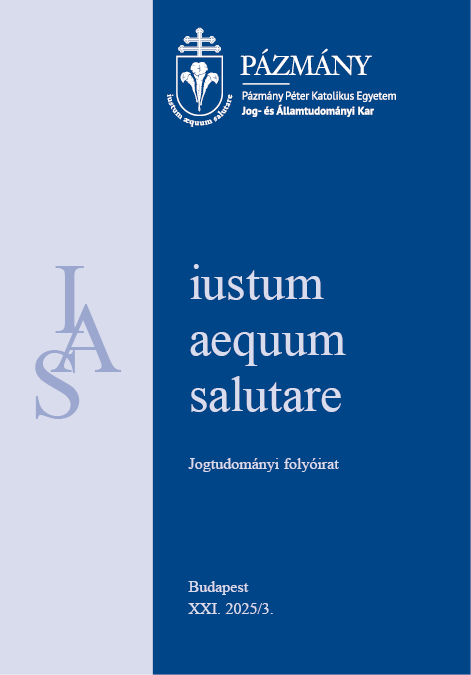Artificial Intelligence Literacy
Abstract
Media literacy and AI literacy are essential skills of the 21st century. They are indispensable in education, the labor market, and digital citizenship. Therefore, it is of utmost importance to define the skills precisely, to define the framework of use, and to develop measurement tools and to make them known to the professional audience. The study focuses on three main areas in this regard. First, it presents the relationship between media literacy and AI literacy. Then, it introduces the AI literacy framework in higher education. Finally, it presents tools suitable for measuring AI literacy. Accordingly, the study first presents the UNESCO Digital Skills Framework. After media literacy, the study discusses the issue of AI literacy. AI literacy has been interpreted and defined in various ways. Ng and colleagues identified four main areas: knowledge and understanding of AI, the ability to use and apply AI, the ability to evaluate and create AI, and ethical considerations. The paper then presents the UNESCO AI Literacy for Students framework, which outlines 12 competencies in four dimensions: Human-Centered Thinking, Ethics in AI, AI Techniques and Applications, and AI System Design. These competencies span three levels of development: Understanding, Applying, and Creating. In the third major unit of the paper, we present the available measurement tools from the perspective of AI Literacy
References
AI competency framework for students. UNESCO 2024. https://doi.org/10.54675/JKJB9835
AI competency framework for teachers. UNESCO, 2024. https://doi.org/10.54675/ZJTE2084
Andok, Mónika: Digitális média konvergencia – konvergens médiajártasságok. In: Hulyák-Tomesz Tímea (szerk.): Generációs kérdések a kommunikációskészségfejlesztésben. (A kommunikáció oktatása 11.) Budapest, Hungarovox, 2016.
Andok, Mónika: Kommunikációs kompetencia–médiajártasság. Koncepcionális különbségek, készségbeli hasonlóságok. In: H. Tomesz Tímea – H. Varga Gyula (szerk.): Kommunikációs készségfejlesztés a pedagógiai munkában. Budapest, Hungarovox, 2019.
Annapureddy, Ravinithesh – Fornaroli, Alessandro – Gatica-Perez, Daniel: Generative AI literacy: Twelve defining competencies. Digital Government: Research and Practice, Vol. 6., No. 1. (2025) https://doi.org/10.1145/3685680
Bewersdorff, Arne – Hornberger, Marie – Nerdel, Claudia – Schiff, Daniel S.: AI advocates and cautious critics: How AI attitudes, AI interest, use of AI, and AI literacy build university students' AI self-efficacy. Computers and Education: Artificial Intelligence, Vol. 8. (2025) https://doi.org/10.1016/j.caeai.2024.100340
Carolus, Astrid – Koch, Martin – Straka, Samantha – Latoschik, Marc Erich – Wienrich, Carolin: MAILS-Meta AI literacy scale: Development and testing of an AI literacy questionnaire based on well-founded competency models and psychological change-and meta-competencies. Computers in Human Behavior: Artificial Humans, Vol. 1., No. 2. (2023) 100014. https://doi.org/10.1016/j.chbah.2023.100014
Cassidy, S. – Eachus, P.: Developing the computer user self-efficacy (CUSE) scale: Investigating the relationship between computer self-efficacy, gender and experience with computers. Journal of Educational Computing Research, Vol. 26., No. 2. (2002) https://doi.org/10.2190/JGJR-0KVL-HRF7-GCNV
Çelebi, Celalettin – Yılmaz, Faith – Demir, Uğur – Karakuş, Ferhat: Artificial intelligence literacy: An adaptation study. Instructional Technology and Lifelong Learning, Vol. 4., No. 2. (2023).
Csepeli, György: Ember 2.0: A mesterséges intelligencia gazdasági és társadalmi hatásai. Budapest, Kossuth, 2020.
Hornberger, Marie – Bewersdorff, Arne – Nerdel, Claudia: What do university students know about Artificial Intelligence? Development and validation of an AI literacy test. Computers and Education: Artificial Intelligence, Vol. 5. (2023) 100165. https://doi.org/10.1016/j.caeai.2023.100165
Lameras, Petros – Arnab, Sylvester: Power to the teachers: an exploratory review on artificial intelligence in education. Information, Vol. 13., No. 1. (2021) https://doi.org/10.3390/info13010014
Lintner, Tomás: A systematic review of AI literacy scales. npj Science of Learning, Vol. 9., No. 1. (2024) https://doi.org/10.1038/s41539-024-00264-4
Livingstone, Sonia: Media literacy and the challenge of new information and communication technologies. The Communication Review, Vol. 7., No. 1. (2004) https://doi.org/10.1080/10714420490280152
Long, Duri – Magerko, Brian: What is AI literacy? Competencies and design considerations. In: Proceedings of the 2020 CHI Conference on Human Factors in Computing Systems. 2020. https://doi.org/10.1145/3313831.3376727
Minsky, Marvin: Society of mind. Simon and Schuster, 1988. https://doi.org/10.21236/ADA200313
Nagy, Krisztina: Műveltség, média, szabályozás: a médiaműveltség médiapolitikai jelentősége és szabályozási keretei. Budapest, Gondolat, 2018.
Newell, Allen – Simon, Herbert A.: Computer science as empirical inquiry: symbols and search. Communications of the ACM, Vol. 19., No. 3. (1976) https://doi.org/10.1145/360018.360022
Ng, Davy Tsz Kit – Lok, Leung Jac Ka – Chu, Samuel Kai Wah – Qiao, Maggie Shen: Conceptualizing AI literacy: An exploratory review. Computers and Education: Artificial Intelligence, Vol. 2. (2021) 100041. https://doi.org/10.1016/j.caeai.2021.100041
Ozmen Garibay, Ozlem– Winslow, Brent – Andolina, Salvatore – Antona, Margherita – Bodenschatz, Anja – Coursaris Constantinos et al.: Six Human-Centered Artificial Intelligence Grand Challenges. International Journal of Human–Computer Interaction, Vol. 39., No. 3. (2023) https://doi.org/10.1080/10447318.2022.2153320
Park, Yuhyun: 8 digital skills we must teach our children. World Economic Forum, 2016. https://www.weforum.org/agenda/2016/06/8-digital-skills-we-must-teach-our-children/
Potter, James W.: Médiaműveltség. Budapest, Wolters Kluwer, 2015.
Szőke-Milinte, Enikő: Információ–Média (tudatosság)–Műveltség. Budapest, Pázmány Péter Katolikus Egyetem, 2020.
Wang, Bingcheng – Rau, Pei-Luen Patrick – Yuan, Tianyi: Measuring user competence in using artificial intelligence: validity and reliability of artificial intelligence literacy scale. Behaviour & information technology, Vol. 42., No. 9. (2023) https://doi.org/10.1080/0144929X.2022.2072768
Wang, Pei: On defining artificial intelligence. Journal of Artificial General Intelligence, Vol. 10., No. 2. (2019) https://doi.org/10.2478/jagi-2019-0002
Wilson, Carolyne et. al.: Media and Information Literacy. Curriculum for Teachers. Paris, UNESCO, 2011.
Copyright (c) 2025 Mónika Andok

This work is licensed under a Creative Commons Attribution 4.0 International License.


